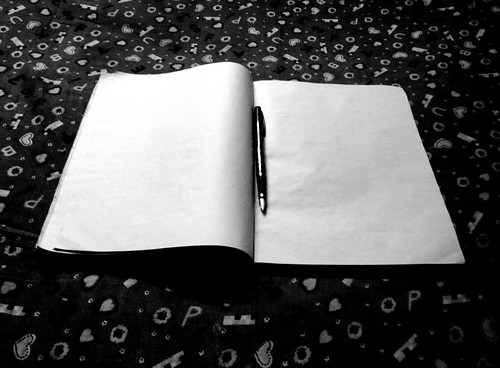I've officially started the second book in my contemporary erotic romance series. Yay! (For those of you who have beta read for me, this will be Jace's story.) So I'm facing down that daunting task of writing the all-important first chapter. And what does that chapter start with? The first line of course.
Some writers think the emphasis on the first line is unfounded, believing that as long as your first page is strong, you're good to go. But others believe that first line is vital to hooking your reader. I tend to lean toward the latter.
In Hooked, Les Edgerton says:
Your first sentence or paragraph may be the most important writing in your story. They may well be what sells your manuscript to an agent or editor.
But even more importantly it can be the difference maker on a sale to a reader later on. I have to admit that I am one of those people that opens to the first page and reads the first line when I'm browsing in a bookstore. Even Amazon posts the opening line underneath the titles of many of their books. I read the blurb for the book too, but a great opening line can win me over.
It makes me think that this author is thoughtful--that if they took the time to come up with a rocking first line, the book is probably going to be good. So we may only have seconds to impress that agent/publisher/reader.
No pressure, right?
So what the heck makes a great opening sentence? Les suggests that the first sentence is "part of the whole" and should contain at least a hint of the end.
When I first read that, I was like, oh hell, that seems impossible. But then I thought through some great opening lines I've read and he's right. Many opening sentences hint at the theme or foreshadow future events if only in a subtle way.
I grabbed a few random books off my shelves for some examples:
Olivia Quinn knew she was losing her husband when she discovered his knockout junior partner caressing his crotch by the azalea bush.--When Alex Was Bad, Jo Davis
Just when I though my day couldn't get any worse I saw the dead guy standing next to my locker.--Marked, PC Cast and Kristen Cast
The terror, which would not end for another twenty-eight years--if it ever did end--began, so far as I know or can tell, with a boat made from a sheet of newspaper floating down a gutter swollen with rain.--It, Stephen King
Years later Amy would remember the day she saw inside the spider house.--Nazareth Hill, Ramsey Campbell
Sybil Davison has a genius I.Q. and has been laid by at least six different guys.--Forever, Judy Blume
Great lines, right? Made me want to read more for sure. And having read these books, each one of these hints at the overall theme or the ending.
When writing a rough draft, I try not to stress about this heavily weighted line. But at the same time, I know if I can get that first line in decent shape early on, it will help guide me through the rest of the book. Will keep the theme in my head. So I end up putting a lot of time into it anyway.
So how about you? What do you think about the whole first line emphasis? Do you wait until you finish drafting to worry about coming up with the perfect first line? What are your first lines or what's your favorite first line from a book?
*This post is a revamped version of one I did in October 2009. Thanks to Sierra, who got me thinking about this post again.



